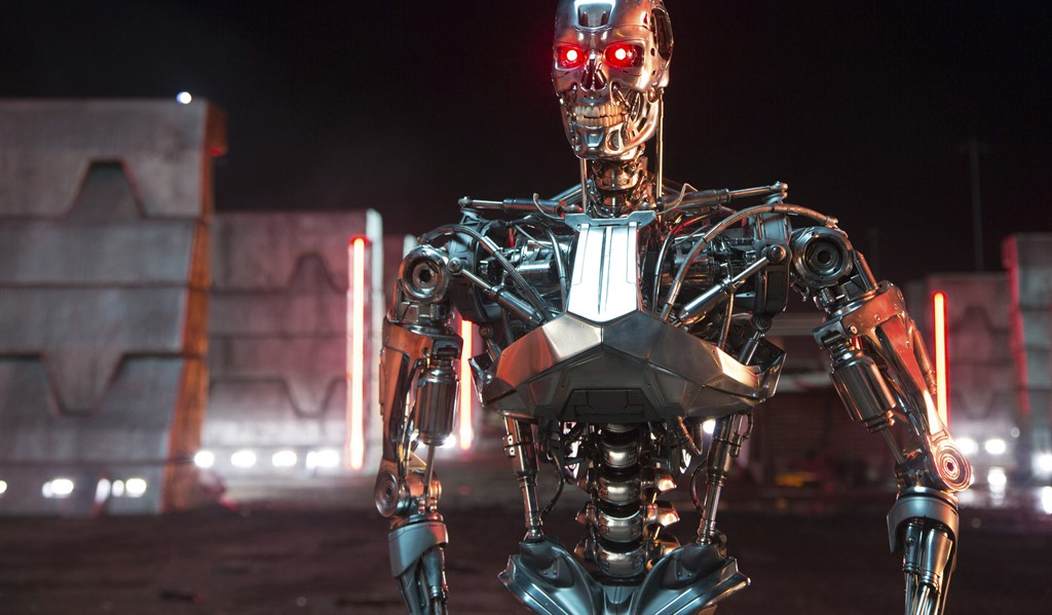If there’s one thing that Western European nations love to do it’s regulate things. (It’s a model that Democrats in America constantly attempt to emulate.) So when Artificial Intelligence began breaking out in a big way a few years ago, the European Union rushed to form a commission to study the situation and figure out how they would regulate it. As the proposal was under development, it was hailed as a first of its kind in the world and many hoped it would provide a roadmap for other countries to follow. But now, with the final details scheduled to be released this week, the EU AI ACT appears to be stalled. It turns out that they don’t seem to know what to do about the latest generation of chatbots like ChatGPT and Google’s Bard. (Associated Press)
Hailed as a world first, European Union artificial intelligence rules are facing a make-or-break moment as negotiators try to hammer out the final details this week — talks complicated by the sudden rise of generative AI that produces human-like work.
First suggested in 2019, the EU’s AI Act was expected to be the world’s first comprehensive AI regulations, further cementing the 27-nation bloc’s position as a global trendsetter when it comes to reining in the tech industry.
But the process has been bogged down by a last-minute battle over how to govern systems that underpin general purpose AI services like OpenAI’s ChatGPT and Google’s Bard chatbot.
Part of the problem is that OpenAI and Google are in Europe arguing against the regulations, saying they will stifle innovation. EU lawmakers argue that there are significant safety considerations that must be taken into consideration. But they also don’t want to shut Europe off to the use of these new systems, which could happen if they push too hard.
At the same time, Europe has its own startup AI companies entering the field, including outfits in both France and Germany. They are demanding a chance to compete and not allow the United States to “dominate the AI ecosystem like they have in previous waves of technologies.” But if Europe too heavily regulates the development of AI, they won’t be able to compete with the United States and China anyway.
The EU is also dealing with the challenge of figuring out exactly how to regulate AI even if they all agree they want to do it. Everyone seems to agree that the latest permutations of large model AI systems may pose a danger to society or humanity itself. Even its creators have expressed those concerns. But nobody seems to have figured out how to design the “guardrails” that many people are demanding or even if they would work. And even if they manage to do that, it’s a safe bet that the Chinese won’t risk a potential competitive advantage by installing a bunch of guardrails, so everyone else will fall behind.
Whatever they plan to do, they’ll need to move quickly. The latest version of ChatGPT (version 5) is already frightening some people. And now OpenAI has submitted trademark applications for ChatGPT-6 and ChatGPT-7.
Artificial intelligence (AI) powerhouse OpenAI, which took the world by storm with its ChatGPT generative AI application, is now applying for trademarks under the names “GPT-6” and “GPT-7”, as the company continues to push the limits of the technology.
It submitted two Chinese trademark applications for GPT-6 under class 9, which covers apparatus and instruments for scientific or research purposes, and class 42, referring to technological services and design, and two other filings for GPT-7 under the same categories, according to records on the website of the Trademark Office of the China National Intellectual Property Administration.
The United States has maintained a lead in the development of generative AI and it appears that the European Union wants a seat at the table. Heavy-handed regulations may not be the way to go if they want to remain competitive. But are we leading the world to a brighter, better place? Or are we leading everyone off of a cliff? We may not learn the answer to that question until the AI eventually “wakes up” and tells us what its plans are.








